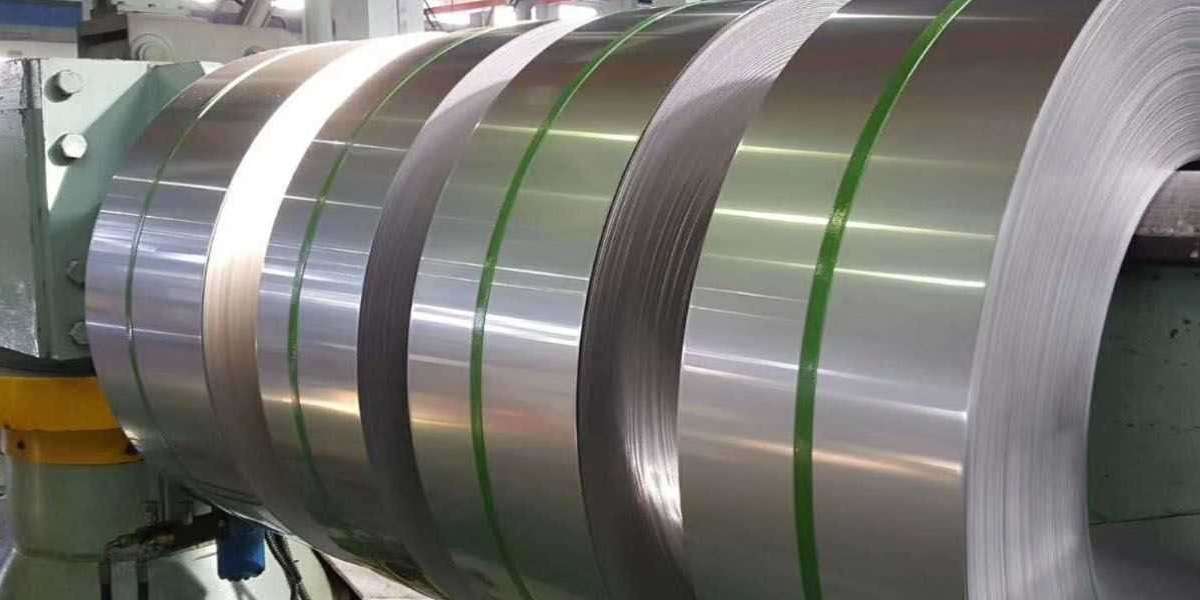321 stainless steel is a type of austenitic stainless steel that offers excellent properties for a variety of high-temperature applications. It is known for its resistance to oxidation and stability under high temperatures, making it a popular choice for industries requiring reliable performance in demanding environments. Below are the key properties of 321 stainless steel coils:
Chemical Composition
- Chromium (Cr): 17-19%
- Nickel (Ni): 9-12%
- Titanium (Ti): 5 times the carbon content or at least 0.70%
- Carbon (C): Up to 0.08%
- Manganese (Mn): Up to 2%
- Silicon (Si): Up to 1%
- Phosphorus (P): Up to 0.045%
- Sulfur (S): Up to 0.03%
High-Temperature Resistance
- Oxidation Resistance: stainless steel 321 coils offer superior resistance to oxidation at elevated temperatures compared to other grades like 304. The addition of titanium stabilizes the steel against intergranular corrosion at high temperatures, making it suitable for use in applications where temperatures reach up to 900°C (1652°F).
- Stability: The alloy maintains its strength and integrity under continuous high-temperature exposure, making it ideal for use in exhaust systems, heat exchangers, and other components subjected to thermal stress.
Corrosion Resistance
- General Corrosion: 321 stainless steel provides good resistance to a wide range of corrosive environments, including various acids and alkaline solutions. It is particularly effective in resisting corrosion in environments where chloride ions are present.
- Intergranular Corrosion: The addition of titanium prevents carbide precipitation, which can cause intergranular corrosion in stainless steels exposed to high temperatures.
Mechanical Properties
- Tensile Strength: 321 stainless steel coils have a high tensile strength, typically ranging from 520 to 720 MPa (75,000 to 105,000 psi).
- Yield Strength: The yield strength generally ranges from 205 to 310 MPa (30,000 to 45,000 psi), making it suitable for structural applications.
- Elongation: The elongation at break is around 40-60%, which indicates good ductility and ability to withstand deformation without fracturing.
Thermal Properties
- Thermal Conductivity: 321 stainless steel has a thermal conductivity of approximately 16.2 W/m·K, which is lower than carbon steels but sufficient for applications where thermal transfer is needed.
- Specific Heat Capacity: The specific heat capacity is around 500 J/kg·K, making it effective in handling thermal expansion and contraction.
Fabrication and Welding
- Workability: 321 stainless steel coils are known for their good machinability and formability. They can be easily cut, shaped, and formed into various configurations without compromising their properties.
- Weldability: The presence of titanium enhances the weldability of 321 stainless steel. It can be welded using common methods such as TIG, MIG, and arc welding, though pre-heating and post-weld heat treatment may be required for thicker sections.
Applications
- Aerospace and Automotive: Used in exhaust systems, aircraft components, and engine parts due to its high-temperature stability and corrosion resistance.
- Chemical Processing: Ideal for components in chemical reactors, heat exchangers, and pipelines handling corrosive chemicals at high temperatures.
- Power Generation: Employed in parts of power plants, such as boiler tubes and furnace components, where thermal and corrosive conditions are prevalent.
- Marine Industry: Suitable for marine environments where high resistance to oxidation and corrosion is needed.
Conclusion
321 stainless steel coils offer a combination of high-temperature resistance, corrosion resistance, and excellent mechanical properties, making them a valuable material for a range of industrial applications. Their ability to maintain performance under demanding conditions, coupled with good weldability and workability, makes them a reliable choice for components in aerospace, chemical processing, power generation, and marine industries.








